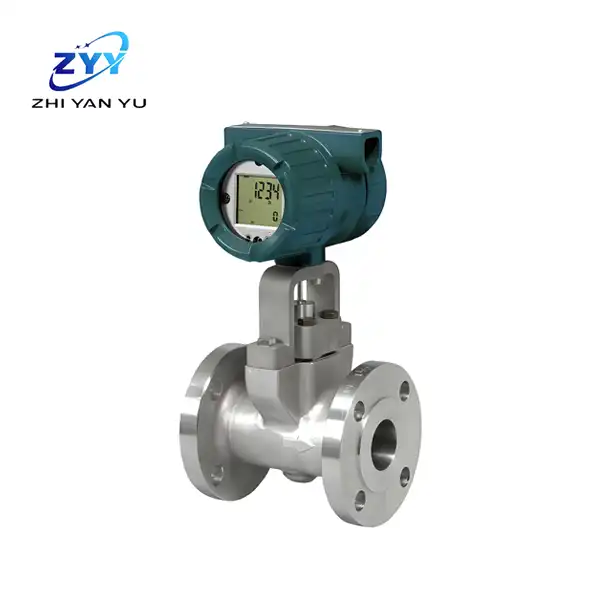- English
- French
- German
- Portuguese
- Spanish
- Russian
- Japanese
- Korean
- Arabic
- Greek
- German
- Turkish
- Italian
- Danish
- Romanian
- Indonesian
- Czech
- Afrikaans
- Swedish
- Polish
- Basque
- Catalan
- Esperanto
- Hindi
- Lao
- Albanian
- Amharic
- Armenian
- Azerbaijani
- Belarusian
- Bengali
- Bosnian
- Bulgarian
- Cebuano
- Chichewa
- Corsican
- Croatian
- Dutch
- Estonian
- Filipino
- Finnish
- Frisian
- Galician
- Georgian
- Gujarati
- Haitian
- Hausa
- Hawaiian
- Hebrew
- Hmong
- Hungarian
- Icelandic
- Igbo
- Javanese
- Kannada
- Kazakh
- Khmer
- Kurdish
- Kyrgyz
- Latin
- Latvian
- Lithuanian
- Luxembou..
- Macedonian
- Malagasy
- Malay
- Malayalam
- Maltese
- Maori
- Marathi
- Mongolian
- Burmese
- Nepali
- Norwegian
- Pashto
- Persian
- Punjabi
- Serbian
- Sesotho
- Sinhala
- Slovak
- Slovenian
- Somali
- Samoan
- Scots Gaelic
- Shona
- Sindhi
- Sundanese
- Swahili
- Tajik
- Tamil
- Telugu
- Thai
- Ukrainian
- Urdu
- Uzbek
- Vietnamese
- Welsh
- Xhosa
- Yiddish
- Yoruba
- Zulu
What is the Most Accurate Mass Flow Meter?
2024-07-09 17:12:57
Mass flow meters are critical in various industries for measuring the flow rate of fluids and gases with high precision. Ensuring the most accurate measurement is essential for maintaining process control, ensuring safety, and optimizing performance. This article delves into the factors that determine the accuracy of mass flow meters and compares some of the leading options available in the market.
1. What Factors Affect the Accuracy of Mass Flow Meters?
Understanding Mass Flow Meter Accuracy
Accuracy in mass flow meters is influenced by several factors, including precision, repeatability, and the ability to perform under different operating conditions.
Key Factors Influencing Accuracy
Several elements affect the accuracy of mass flow meters:
Calibration: Proper calibration is crucial for ensuring that the flow meter provides precise readings. Calibration involves setting the meter to a known standard, ensuring minimal error in actual flow measurements.
Fluid Properties: Changes in viscosity, temperature, and pressure of the fluid can impact accuracy. Advanced mass flow meters are designed to compensate for these variations.
Installation Conditions: The environment and method of installation, such as positioning and the presence of any obstructions, can significantly affect accuracy. Detailed installation guidelines are provided by manufacturers to ensure optimal performance.
Maintenance: Regular maintenance and recalibration are essential to sustain the accuracy of the flow meter over time.
Technological Advances in Mass Flow Meters
Recent technological advancements have enhanced the accuracy of mass flow meters:
Advanced Sensor Technology: High-precision sensors capable of providing reliable data even in challenging conditions.
Digital Signal Processing: Reduces noise and compensates for factors that could introduce errors, enhancing measurement accuracy.
Robust Design: Ensures long-term reliability and accuracy in harsh industrial environments.
2. How Does the Accuracy of Different Mass Flow Meters Compare?
Comparison Criteria
When comparing mass flow meters from different brands, several criteria are considered, including accuracy, reliability, ease of use, and overall performance.
Accuracy and Precision
Leading mass flow meter brands such as Yokogawa, Emerson, Siemens, and Endress+Hauser are renowned for their high accuracy and precision. Each brand has its strengths:
Yokogawa: Known for its high-precision sensors and advanced digital signal processing, ensuring minimal error margins.
Emerson: Offers a wide range of flow meters with excellent accuracy and repeatability.
Siemens: Provides robust and accurate flow meters suitable for various industrial applications.
Endress+Hauser: Known for their high accuracy and ease of integration into existing systems.
User Experience and Ease of Use
User experience also plays a significant role:
Interface: User-friendly interfaces and comprehensive manuals are crucial for ease of operation and configuration.
Installation and Maintenance: Simplified installation processes and minimal maintenance requirements are highly valued by users.
Performance Under Challenging Conditions
The ability of mass flow meters to perform reliably under various challenging conditions, such as high temperatures, pressures, and corrosive environments, is a key differentiator among brands. Robust designs and advanced technologies ensure long-term accuracy and reliability.
3. What Applications Benefit from the Most Accurate Mass Flow Meters?
Industrial Applications
Mass flow meters are widely used in numerous industrial applications due to their accuracy and reliability. Key industries include:
Oil and Gas: For accurate measurement of hydrocarbon flow in pipelines and refineries.
Chemical Processing: Ensures precise measurement of reactive and non-reactive chemicals in production processes.
Pharmaceuticals: Critical for maintaining accurate flow measurements in the production of pharmaceuticals, ensuring consistency and quality.
Environmental Monitoring
Mass flow meters are also utilized in environmental monitoring applications:
Air Quality Monitoring: Used to measure emissions and air quality in various settings, ensuring compliance with environmental regulations.
Water Treatment: Essential for accurate measurement of water flow in treatment plants, helping to manage resources efficiently.
Food and Beverage Industry
In the food and beverage industry, the accuracy and reliability of mass flow meters play a crucial role in:
Ingredient Measurement: Ensuring precise measurement of ingredients, which is critical for maintaining product quality and consistency.
Process Control: Enhances process control, leading to improved efficiency and reduced waste.
4. What Are Common Issues with Mass Flow Meters?
Understanding Potential Issues
While mass flow meters are generally reliable, there are a few common issues that users may encounter. These include:
Calibration Drift: Over time, calibration drift can occur, affecting the accuracy of measurements. Regular calibration and maintenance are necessary to mitigate this issue.
Sensor Fouling: In environments with high levels of particulates or contaminants, sensors can become fouled, leading to inaccurate readings. Implementing proper filtration and cleaning protocols can help prevent this.
Electrical Interference: Electromagnetic interference from nearby equipment can sometimes affect the performance of the flow meter. Proper shielding and grounding can minimize these effects.
Troubleshooting and Solutions
Manufacturers provide comprehensive support and troubleshooting resources to address these issues:
Regular Maintenance: Adhering to recommended maintenance schedules helps prevent issues like calibration drift and sensor fouling.
Technical Support: Access to technical support teams for assistance with troubleshooting and resolving any issues.
Training and Resources: Offering training programs and detailed documentation to help users understand and mitigate common issues.
In conclusion, the most accurate mass flow meters are those that combine advanced technology with robust design and comprehensive support. Brands like Yokogawa, Emerson, Siemens, and Endress+Hauser are recognized for their high precision and reliability, making them preferred choices across various industries. By understanding the factors that influence accuracy and following best practices for installation and maintenance, users can maximize the performance and reliability of their mass flow meters.
References
Yokogawa Corporation. (2024). Mass Flow Meters: Features and Benefits
Emerson Electric Co. (2024). Comparing Mass Flow Meters
Siemens AG. (2024). Mass Flow Meter Technology
Endress+Hauser. (2024). Flow Measurement Solutions
Chemical Engineering. (2024). Choosing the Right Mass Flow Meter
Control Engineering. (2024). Mass Flow Meter Accuracy
Flow Control Network. (2024). Mass Flow Meter Comparison
Industrial Automation. (2024). Flow Meter Selection Guide
Environmental Science & Technology. (2024). Applications of Mass Flow Meters in Environmental Monitoring
Food and Beverage Processing. (2024). Flow Measurement in the Food Industry
For more information, feel free to contact us at lm@zyyinstrument.com.
YOU MAY LIKE
Rosemount Micro Motion Coriolis Mass Flow Meter
Self-Verification: Features Smart Meter Verification™ for complete, traceable calibration checks.
Calibration Facility: Supported by a world-leading ISO/IEC 17025 calibration facility for high performance.
Smart Sensor Design: Reduces the need for onsite zero calibration.

